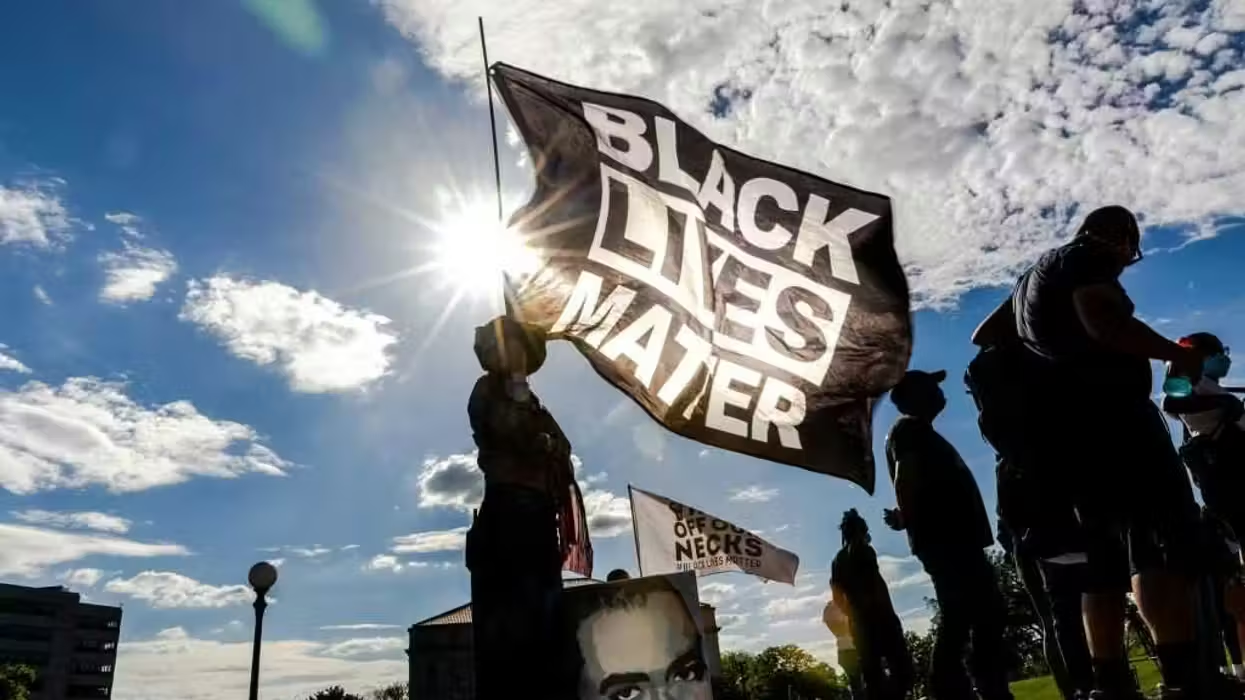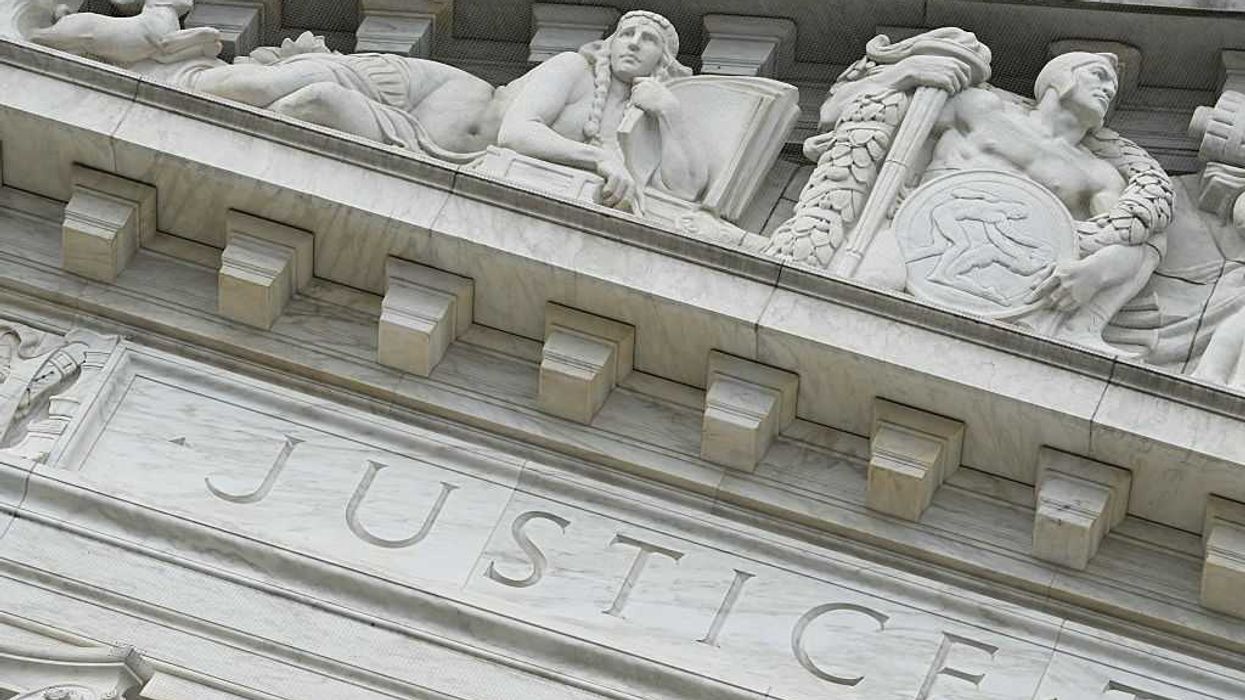 Credit: Getty Images
Credit: Getty Images
Speaking at Howard University Wednesday on the challenges Republicans face when trying to connect with the black community, Kentucky Sen. Rand Paul said that the GOP faces long odds and that the party is need of change. And could it be that Pauls' one small speech was a giant step toward Republicans winning back minorities?
Considering Paul reminded students at the historically black university of the GOP's history as an anti-slavery party bent on abolishing racist Jim Crow laws, the answer could be "yes." He expressed hope that black voters would be more open to the Republican philosophy like they once were, noting that its policies could help the black community.
The history
It's perhaps easy for some to forget that the Republican Party was founded to oppose slavery. From the days of Abraham Lincoln, the GOP had, ironically, always led the charge in terms of equal rights, but a series of events marked a sharp shift in party allegiance among blacks.
For some members of the black community, converting from Republican to Democrat over the span of several decades makes sense. Government, some argue, has come in to aid black Americans facing serious challenges from the days of Abe Lincoln, therefore it is plausible to think that even in the modern-era of equal rights, government might be viewed more favorably by members of the black community.
The progressives' counter-argument
Still progressives cite certain "facts" to support the argument that they are better for minorities: President Lyndon B. Johnson signed into law the Civil Rights Act of 1964. The fact that the crux of the bill was drafted and pushed through Congress by Republican Senator Everett Dirksen (as was all previous civil rights legislation written and pushed by Republicans) and the fact that LBJ staunchly opposed the passing of Civil Rights legislation in the decades leading up to his presidency, bears little relevance on the left’s present-day narrative.
In fact, during the late 1950s and early 1960s, Democrats John F. Kennedy and LBJ, who famously stated: “Get ready to take up the Goddamned nigra bill again,” fought ardently against Dwight D. Eisenhower’s Civil Rights legislation of 1957 and had each respectively opposed other Republican attempts at ensuring racial equality in the U.S.
It is a generally accepted belief that LBJ only signed the Civil Rights Act due to mounting pressure of both the Vietnam War protests and Dr. Martin Luther King’s growing voice on Civil Rights issues. This, coupled with riots fueled by racial tension gave way so that LBJ was said to have acquiesced, albeit reluctantly, to signing onto the Civil Rights agenda.
This "tabla rasa," may have allowed Democrats to claim that issues of racial equality were indeed their own invention and it has served as the bedrock of their persona as champions of minorities ever since.
Likewise, the Ku Klux Klan – the disgraced racist organization to which even Democratic President Harry Truman belonged (albeit briefly)— was founded by Democrats, operating at one point as the de facto militant branch of the party.
Nixon
Despite Democrats' history of racism, members of the black community migrated to the Democratic party in drives. Another potential catalyst for blacks shift from Republican to Democrat, some argue, was the emergence of the “Dixiecrats” — a short-lived segregationist party that had splintered off from the Democratic Party in 1948 -- and Republican President Richard Nixon’s purported “Southern Strategy.”
Nixon was a staunch supporter of Civil Rights, however. His presidential campaign's “Southern Strategy” allegedly sought to garner the white vote in Southern states by pandering its residents’ primary concern: Desegregation. Critics of Nixon allege that he wooed racist, Southern Democrats over to the Republican side by using “dog whistle” (this is where the term originates) terminology and “code speak” to signal that the GOP would stand in the way of ”states rights” to oppose integration.
Thus, a number of racist Southern Democrats became Republican and, perhaps understandably, the GOP began losing its black members.
Today
Today, Republican lawmakers' efforts to introduce voter ID laws in their respective states, has renewed cries of "Jim Crow." This, coupled with what many argue is poor outreach in minority communities has further alienated the GOP from those the party was created to stand for.
During the 2012 Democratic National Convention in Charlotte, North Carolina, TheBlaze caught up with former Republican National Committee Chairman Michael Steele to glean greater insights into the demographic shift among parties.
He believes that the black community in the 1930s was affected by the Great Depression and may have seen FDR in a more favorable light based on their own socio-economic positions. He added that Republicans’ Southern Strategy, coupled with a decline in GOP outreach in the community combined, created the balance tilt.
Steele was emphatic, however, in stating that Republicans must better articulate their historic link with blacks in an honest way.
“It’s not just appealing to a social agenda, it’s an entire philosophy and idea,” he told TheBlaze.
“You won’t join a party where you don’t feel wanted. African Americans forget we voted 90/10 for Republicans… just like 94/0 for Democrats today. It’s incumbent on the party [GOP] to make that step.”
While students at Howard University said they didn’t agree with Paul on all of the issues, some gave him credit for speaking to them openly. “It could be very intimidating," said 18-year-old freshman Tasia Hawkins of Paul's remarks.
"You’re sitting in a room with people who don’t support you for the most part so I do give him credit for coming."
Perhaps Paul's recent speech at Howard is an example of one GOP member making that first step.








